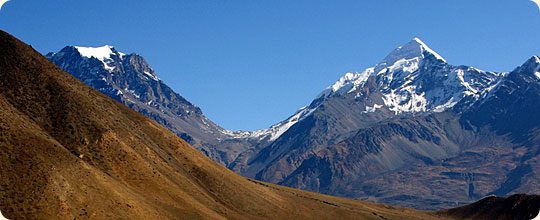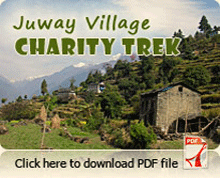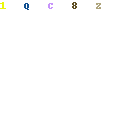

Bhutan General Information - Facts and Bhutan History
In 1865, Britain and Bhutan signed the Treaty of Sinchulu, under which Bhutan would receive an annual subsidy in exchange for ceding some border land to British India. Under British influence, a monarchy was set up in 1907; three years later, a treaty was signed whereby the British agreed not to interfere in Bhutanese internal affairs and Bhutan allowed Britain to direct its foreign affairs. This role was assumed by independent India after 1947. Two years later, a formal Indo-Bhutanese accord returned the areas of Bhutan annexed by the British, formalized the annual subsidies the country received, and defined India's responsibilities in defense and foreign relations. A refugee issue of some 100,000 Bhutanese in Nepal remains unresolved; 90% of the refugees are housed in seven United Nations Office of the High Commissioner for Refugees (UNHCR) camps. In March 2005, King Jigme Singye WANGCHUCK unveiled the government's draft constitution - which would introduce major democratic reforms - and pledged to hold a national referendum for its approval. A referendum date has yet to be named, but should occur in 2008. In December 2006, the King abdicated the throne to his son, Jigme Khesar Namgyel WANGCHUCK, in order to give him experience as head of state before the democratic transition.

Bhutan Country Map
Language:
Dzongkha, the Language of Dzong belongs to the Tibetan Linguistic family originally spoken in western Bhutan. It is now the National Language. English is widely spoken in the main towns and it is the principle medium of instruction in schools throughout the kingdom.
Time Zone:
Bhutan being tiny country has only one time zone. Bhutan Standard time is 6 hours ahead of Greenwich Mean Time (GMT), one hour behind Bangkok time, 30 minutes ahead of the Indian time and 11 hours ahead of the standard New York time. Bhutan's time matches with Bangladesh time.
Currency:
Bhutanese currency is called Ngultrum. Ngultrum (Nu in short) is as par with the Indian currency, Rupees. Ngultrum is accepted only in some bordering Indian towns, whereas Rupee is accepted throughout Bhutan. However, please note that the Indian Ruppess of the 500 and higher denominations are not accepted in Bhutan. One US $ is roughly equal to Nu. 38. More information on up-to-date currency exchange visit www.bnb.com.bt. Most travelers’ cheques are accepted but shops generally charge a levy on credit cards. Payments sometimes can be made with American express, VISA and the JCB cards although the hotels and shops that accept are usually confined to Thimphu and Paro. Cash is always more convenient, particularly in the districts outside Thimphu, Paro and Phuentsholing towns.
Postal & Communication Services:
The Bhutanese postal system is reliable, you can send mails from hotels and post offices and no special procedures are necessary. If you mail cards or letters from the Thimphu post office, you can buy exotic Bhutan postage stamps from the philatelic bureau and use them on your letters and postcards. Bhutan Post offers outgoing EMS [expedited mail service], which is a reliable and fast international mail delivery facility that is cheaper than courier services. It also has a LUM [local urgent mail] service for delivery within Bhutan. DHL is the only international courier to operate from Bhutan. Most of the kingdom’s major towns have both domestic and international direct dial facilities. Nearly all hotels and some PCOs have facilities to send and receive faxes. Bhutan has its own Internet and email services and B-mobile facilities.
Customs
Exports of antiques, plants or animal products are strictly prohibited. Visitors are required to fill up the Custom Form on their arrival. Cameras, video cameras, computers and other electronic equipment for personal use must be declared on the Custom forms. Some articles, which are exempted from duty are 2 liters of wine/any other alcohol. The custom authorities will not allow you to take any old items if they have not been certified as non-antique. Therefore all tourists should be cautious in purchasing any old items.
Tobacco
On 17th December 2004, Bhutan became the world’s first nation to introduce a complete ban on tobacco sales, following a resolution taken by the National Assembly. Smoking is also now restricted to private areas. However, tourists are allowed to bring 1carton cigarettes subject to payment of 100% customs duty and 100% sales tax.
Season to Visit Bhutan
Bhutan has four seasons. Every season has its own beauty and adventures one. The best season that we can recommend you are the spring season - March, April and May. Other suitable season is autumn in months of September, October and November where most of the festivals (Tshechus) take place. For sightseeing purpose of the great Himalayan mountains ranges, autumn season is recommended as during that time the skies are very clear and you can catch the rare glimpse of the great Himalayan mountain ranges.







